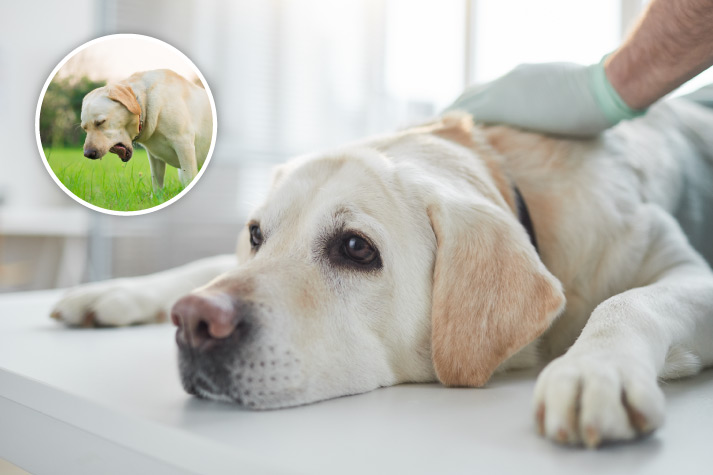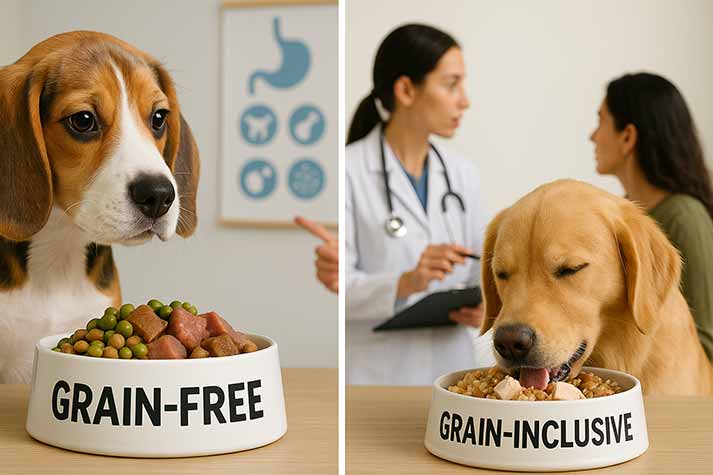
26 May
How to Spot and Handle Respiratory Illness in Dogs: Your Go-To Guide as a Pet Parent
When it comes to our dogs, we do everything we can to keep them happy, healthy, and safe. From regular walks and balanced diets to vet checkups and mental stimulation, being a responsible pet parent means staying ahead of potential health concerns. One area where vigilance can make a real difference is respiratory health.
Understanding how these illnesses develop, what symptoms to look for, and how to prevent them is key to protecting your dog and the other pets they meet.
Here’s How to Spot and Treat Respiratory Illness in Dogs.
What Is Kennel Cough and Why Should You Care?
Kennel cough, officially referred to as Canine Infectious Respiratory Disease Complex (CIRDC), is one of the most contagious respiratory infections in dogs. It can be caused by several different pathogens, both viral and bacterial. The most common offenders include canine parainfluenza virus, canine influenza virus, and the Bordetella bronchiseptica bacteria.
What makes kennel cough particularly concerning is how easily it spreads. Unlike some other conditions that require direct physical contact, kennel cough is airborne. A cough or sneeze can launch infectious particles into the air, where they linger and expose other dogs.
The infection spreads especially fast in areas where multiple dogs gather, such as:
- Boarding kennels
- Pet daycares
- Dog parks
- Shelters
- Grooming facilities
Because of its infectious nature, no dog is truly immune, regardless of breed, age, or size. Even well-cared-for pets can catch it, which is why awareness and prevention are so important.
Symptoms of Kennel Cough: What to Watch For
While some cases of kennel cough are mild, others can progress and make your dog truly uncomfortable, lead to secondary complications. Being able to identify the warning signs early is crucial.
Keep an eye out for the following symptoms:
- Persistent, dry cough that often sounds like a honk
- Sneezing
- Nasal discharge
- Watery or goopy eyes
- Fatigue or low energy
- Loss of appetite in some cases
It is important to note that some dogs can be asymptomatic carriers. That means they may show no visible symptoms but can still spread the disease. If your dog has been around other dogs recently, especially in communal environments, and starts coughing or seems off, contact your vet immediately. A complete veterinary exam is the best way to rule out other causes and confirm kennel cough or a similar infection.
Prevention: The Best Defence
Like with most diseases, prevention is not only easier but also far less stressful and expensive than treatment. The two key pillars of preventing kennel cough are vaccination and hygiene.
Vaccination
Your dog’s core vaccination schedule typically includes protection against the most common pathogens associated with kennel cough. These include:
- Bordetella vaccine
- Canine parainfluenza vaccine
- Canine influenza vaccine
- DHPP combo vaccine (Distemper, Hepatitis, Parainfluenza, Parvovirus)
Most vets recommend booster shots every 6 to 12 months, depending on your dog’s lifestyle and risk level.
Hygienic Environment
Since kennel cough spreads easily through the air and contaminated surfaces, cleanliness can go a long way.
Here’s how to create a safer environment for your dog:
- Wash food and water bowls daily
- Disinfect toys and bedding regularly
- Use pet-safe cleaning products to avoid harmful chemicals
- Ensure good air circulation in your home or kennel
- Avoid crowded dog areas during outbreaks
If you are boarding your dog or using pet daycare services, ask about their cleaning protocols and vaccination requirements to ensure your dog isn’t exposed unnecessarily.
Treatment: How to Help Your Dog Recover
Most mild cases of kennel cough resolve on their own within one to two weeks, especially with proper care. However, dogs with compromised immune systems or those suffering more severe symptoms may need medical intervention.
At-home care strategies include:
- Steam inhalation: Bring your dog into the bathroom while you run a hot shower. The steam helps ease coughing and soothe the throat.
- Plenty of rest: Limit exercise and loud play to avoid irritating the airways.
- Hydration and nutrition: Make sure your dog drinks enough water and eats well to support recovery.
- Avoid stressors: Keep the environment calm and quiet.
When to call the vet: If symptoms worsen, persist beyond 7–10 days, or include fever, wheezing, or laboured breathing, consult your vet immediately. Your dog may need antibiotics, cough suppressants, or anti-inflammatory medications.
Crucially, keep your dog isolated from other pets until your vet confirms they’re no longer contagious. This helps prevent further spread and allows your pup to heal without setbacks.
Final Thoughts: Proactive Pet Care Starts with Awareness
Kennel cough and other canine respiratory infections are preventable, manageable, and treatable, but only if we catch them in time. Regular vaccinations, hygienic living conditions, and a sharp eye for symptoms form the cornerstone of good respiratory health in dogs.
As pet parents, our dogs depend on us to notice when something is not right. They cannot speak, but they do show signs; and when it comes to illnesses like kennel cough, awareness matters.
By staying informed and proactive, you are keeping your dog safe while also contributing to a healthier pet community overall.






AUTHOR’S BIO
Carry My Pet
Passionate pet enthusiasts and globetrotters, dedicated to easing furry friends' journeys worldwide. Penning tales of compassion at CarryMyPet, where every relocation is a tail-wagging adventure.